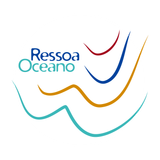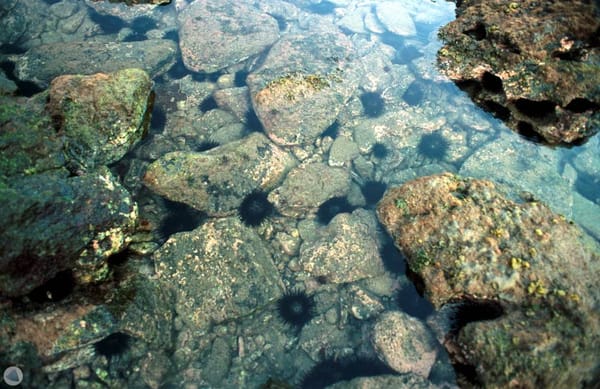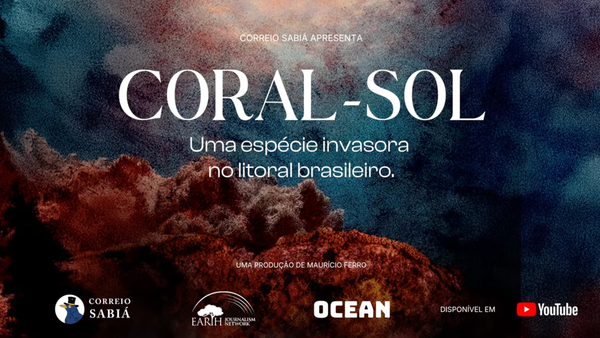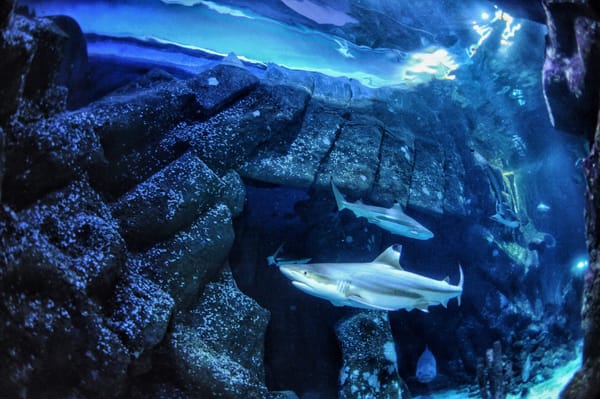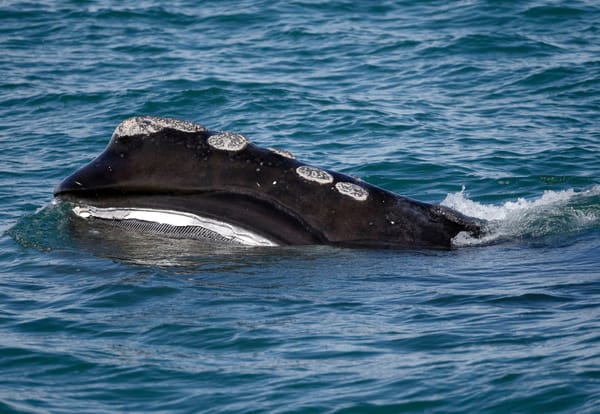Towards a new and more inclusive National Coastal Management Plan
The central idea is that the solutions to the impasses of modernity do not lie ahead, but in the reconnection with original knowledge, the living heritage of traditional populations.
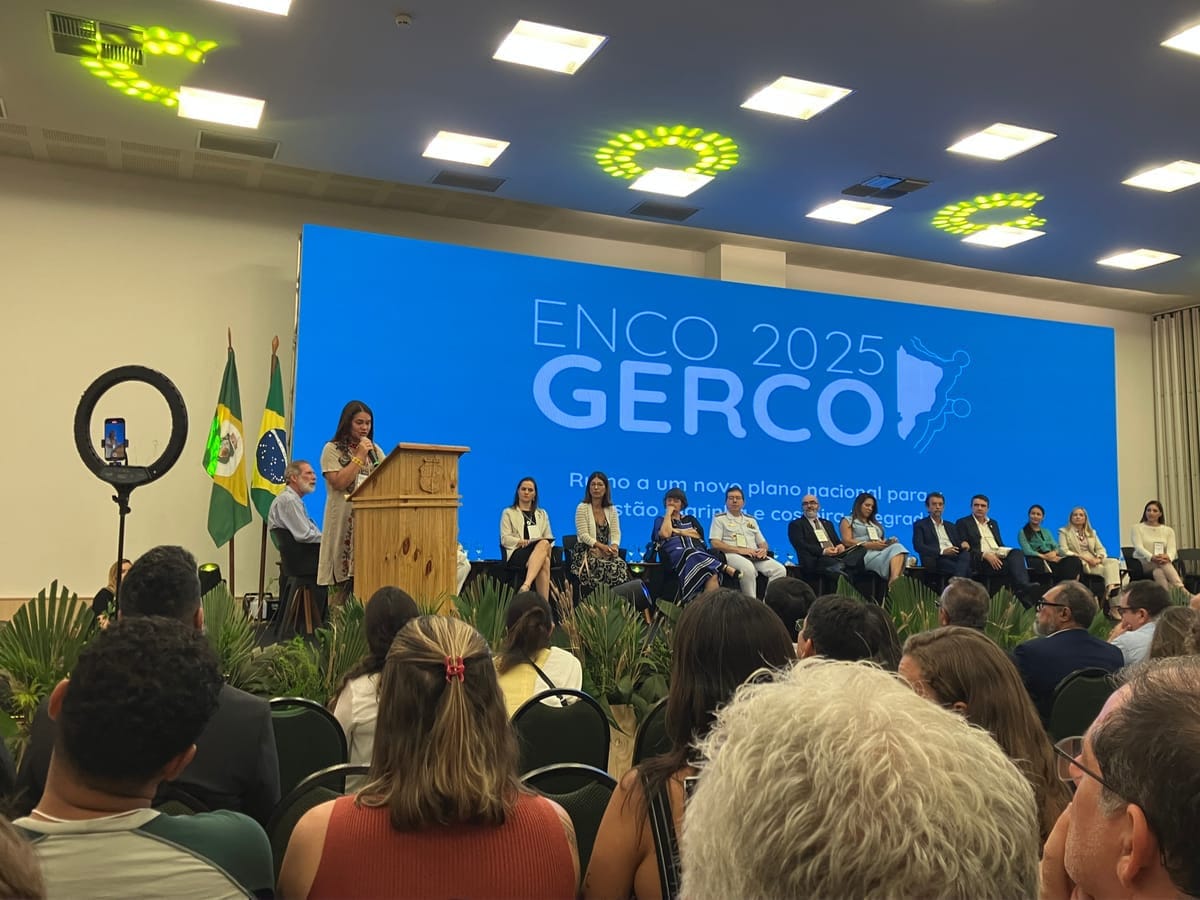
By Luciana Yokoyama Xavier and Monique Torres de Queiroz (*mini bios at the end of the text)
In its fifteenth edition, Brazil's leading coastal management event innovated uniquely: it sought to build on tradition. The event featured representatives of traditional peoples and communities in the debates and, for the first time, at the opening panel. The message is clear: the coast cannot be managed without recognizing the rights and knowledge of those who have historically occupied it.
The concept of an "ancestral future," promoted by leaders like Ailton Krenak, has been gaining increasing resonance in discussions about sustainability and is now extending to the ocean. The central idea is that the solutions to the impasses of modernity do not lie ahead, but in reconnecting with original knowledge, the living heritage of traditional populations.
While governments come and go, and public policies change, one group has remained the guardians of the Brazilian coast for centuries. These are the traditional peoples and communities (TCPs), who, with their local knowledge and territorial ties, have been implementing integrated coastal management of coastal areas long before the term existed in legislation.
The 1st Brazilian Marine-Coastal Assessment (DMC) estimates that there are at least 61 Indigenous Lands, 111 quilombola territories, and several other communities, such as caiçaras (coastal inhabitants), artisanal fishermen, and coastal and marine extractivists, whose existence and culture are fundamental to the identity of the Brazilian coast. Despite this, these groups and their practices have been, for years, invisible, neglected, and marginalized in public policymaking processes.
In one of its main findings, the chapter written by representatives of these groups at the DMC highlights that "care for marine-coastal environments necessarily involves the recognition and appreciation of traditional sustainable management methods" and that "management instruments developed in dialogue with indigenous peoples and traditional communities demonstrate greater potential for shared care of marine-coastal environments." This message is reinforced by the presence of representatives of traditional peoples and communities at the 15th National Meeting on Coastal Management (XV Encogerco).

From the place of speech to the place of decision
At the event's opening ceremony, Ana Flávia Pinto, an artisanal fisherwoman and caiçara from São Paulo, and member of the Forum of Traditional Communities of Angra-Paraty-Ubatuba, made it clear that attendance at the event cannot be merely symbolic: "We have been experiencing the impacts of a plan in our territories that, while important, has mostly been implemented top-down, without real dialogue with the communities. And this can no longer happen:
“NOTHING ABOUT US WITHOUT US!”
In her speech, Ana Flávia presented concrete demands for the revision of the PNGC. The main demand is the mandatory inclusion of Traditional Peoples and Communities (PCTs) at all levels of the plan's action, from the federal to the municipal level, ensuring their effective participation and incorporating traditional practices into planning and management instruments. Furthermore, she called for the recognition of traditional territories as priority areas for coastal management, with measures that guarantee access, use, and protection of these spaces, which are fundamental to the identity and survival of these populations. The fisherwoman also emphasized the importance of participation, transparency, and social oversight in management committees and councils, and the integration of the PNGC with other essential public policies, such as food sovereignty, health, and education, promoting a more holistic and intersectoral approach to coastal development.
The shout, "Our struggle is every day, territory is not a commodity," which closed Ana's speech, resonated repeatedly throughout the event.
A trajectory of almost 4 decades
The Encogerco (National Coastal Management Plan) began in 1988 as a technical forum to discuss the implementation of coastal management in Brazil and has established itself as a space for debating and shaping public policies for the Brazilian coastal zone. It was from Encogerco's discussions that important instruments emerged, such as the II National Coastal Management Plan, in effect since 1997, and the Orla Project. Over the years, the technical nature of the Encogerco has evolved to provide space for the coordination and participation of research entities, non-governmental organizations, the private sector, and, increasingly, traditional peoples and communities.
The XV Encogerco, held in Fortaleza from September 29th to October 2nd, was attended by approximately 800 people and discussed the collective development of the new National Coastal Management Plan (PNGC III). The discussions were channeled into four central areas: Coastal Vulnerability and Adaptation to Climate Change; Integrated Land Use Planning; Conservation and Recovery of Coastal Ecosystems; and Social Participation in Coastal Management. After three days of intense debates in thematic groups, the proposals presented at the final plenary session pointed to a clear and urgent path forward for the Brazilian coast. One of the strongest points was the need for truly inclusive and equitable coastal governance, in which the PCTs act as protagonists in policymaking, not merely as consultants. Echoing the demands of the opening panel, the proposals emphasized that coastal resilience itself is intrinsically linked to the strengthening of these communities, including land regularization and the fight against environmental racism.
Concurrently, the discussions highlighted the importance of prioritizing nature- and ocean-based solutions as a central strategy for climate adaptation and territorial protection. This includes the expansion and effective implementation of Marine Protected Areas, the restoration and protection of critical ecosystems, such as dunes and mangroves, and natural barriers against erosion and sea-level rise. The proposals also call for the progressive replacement of hard structures, such as concrete breakwaters, with natural infrastructure, and the creation of specific funds to finance these adaptation actions. The proposals were received with a general sense of hope and expectation, marked by the historic feeling that, finally, the voices of the peoples of the sea were being recorded. However, there was a clear collective awareness that registration at the event does not guarantee incorporation into PNGC III. This understanding motivated demands for detailed documentation of the debate so that the proposals could be incorporated into the plan's drafting and not be limited to the event.
Luciana Yokoyama Xavier, PhD in oceanography, is a researcher at the UNESCO Chair for Ocean Sustainability, a member of the Women's League for the Ocean, and a Media Science fellow (FAPESP 2025/06447-4) at Rede Ressoa, a collaborative communication network about the ocean.
Monique Torres de Queiroz, master's degree in oceanography, is a doctoral candidate at IO-USP (Oceanographic Institute of the University of São Paulo), is a researcher at the UNESCO Chair for Ocean Sustainability, and is a communicator for the Ressoa Network.

